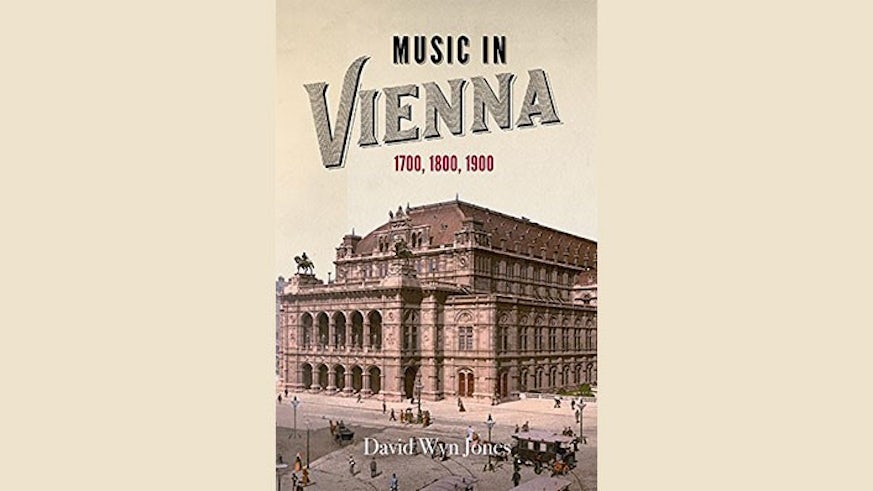Music in Vienna: 1700, 1800, 1900
15 June 2016

The image of Vienna as a musical city is a familiar one and it has long been associated with many of the most significant developments in Western music. A new book by Professor David Wyn Jones explores, for the first time, the history of music within the city.
Music in Vienna: 1700, 1800, 1900, published this month by Boydell & Brewer, opens up new outlooks on music in the Austrian capital by focusing on three different epochs. Broadly described as ‘Imperial and Royal’, ‘Aristocratic’ and ‘Bourgeois’, they point to the very different relationship between music and society that existed in the times.
Professor Jones said: “Many composers from Haydn, Mozart and Beethoven to Brahms, Johann Strauss, Bruckner and Mahler made Vienna their home and produced many of their finest works there and, of all the art forms, music is the one that is readily associated with the city. I’ve always found it surprising, therefore, that there is no major study in either English or German of music in Vienna. Understanding of Vienna as a musical city is, instead, largely derived from biographies of composers who worked there, often patchy or misleading in detail.”
Professor Jones’ book fills this gap and opens up new outlooks on music in Vienna by focussing on the role and function of music in the city, as well as the relationship between music and wider political and social developments.
A two-year Major Research Fellowship from the Leverhulme Trust gave Professor Jones the opportunity to research and write this commissioned volume, allowing him to balance writing with a series of research visits to target particular resources.
Professor Jones said: “The Fellowship allowed me to make several visits to research libraries in Vienna, particularly the Gesellschaft der Musikfreunde, the Musiksammlung of the Österreichische Nationalbibliothek and the Wien Bibliothek.
“This means that my volume is continually informed by new research as well as new perspectives. I was able to use my visits to Vienna to target areas including the study of manuscript sources for operas around 1700 that had a strong cultural-cum-political purpose; the effect of the ongoing Napoleonic Wars on musical life in Vienna around 1800; and documenting the nature of concert and operatic life in Vienna around 1900.
“Without the Leverhulme Trust Fellowship I would never have had the opportunity to fulfil the ambition of writing this pioneering volume on the history of music in Vienna. This project has now been accomplished and, equally rewarding, it has provided impetus for further work in this area.”
